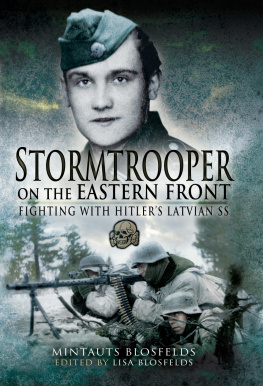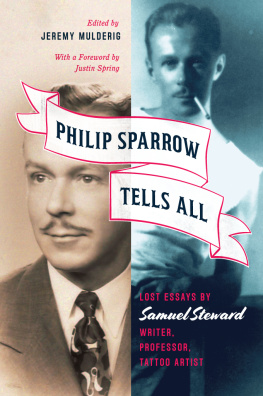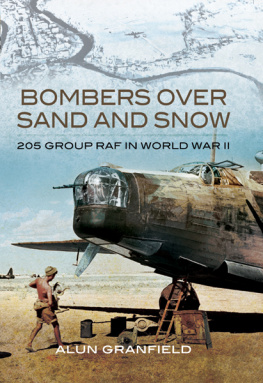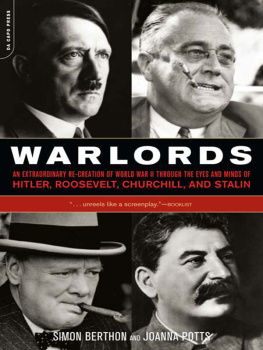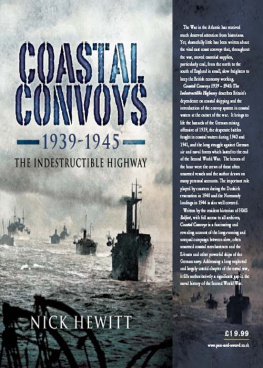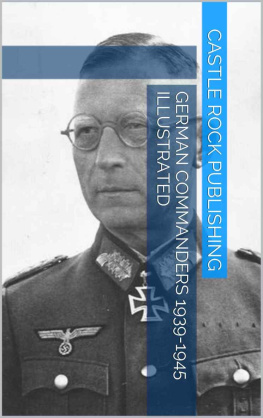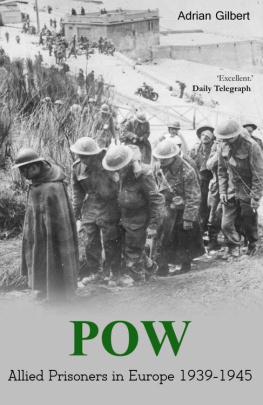I Promised I Would Tell
BY SONIA SCHREIBER WEITZ
EDITED BY SUSAN BELT COGLEY
Facing History and Ourselves National Foundation, Inc. Brookline, Massachusetts

Copyright 2012 by the Sonia Schreiber Weitz estate
Revised printing 2004
All rights reserved. No part of this book may be reproduced or transmitted in any form or by any means, electronic or mechanical, including photocopying, recording, or by any information storage or retrieval system, without permission in writing from the publisher.
Facing History and Ourselves is a registered trademark registered in the U.S. Patent & Trademark Office.
Cover art: Collective Memory, 1986, by Samuel Bak. Image Courtesy of Pucker Gallery, www.puckergallery.com
Facing History and Ourselves
16 Hurd Road, Brookline, MA 02445
(617) 232-1595
www.facinghistory.com
ISBN 978-0-9615841-3-9
eBook ISBN 978-0-9837870-5-1
Dedicated to my sister Blanca
whose courage and love
willed me to survive,
and to my husband Mark
whose love and understanding
healed my body and soul.
Poems
Acknowledgements
This book was made possible by many volunteers who devoted many hours of editing and production work.
Management from beginning to end was directed by former Facing History and Ourselves Financial Manager Joe Wiellette.
Sonia spent many hours organizing the book with Margot Stern Strom, executive director of Facing History, and Marc Skvirsky, vice-president for program.
Other staff members of Facing History, Program Associates Steve Cohen and Jimmie Jones, contributed editing and production talent.
Major editing was done by Susan Belt Cogley, whose skill and commitment deserve our deepest gratitude and appreciation.
Cover painting courtesy Pucker Gallery, Boston.
Facing History and Ourselves National Foundation
Facing History and Ourselves is a nonprofit educational organization whose mission is to engage students of diverse backgrounds in an examination of racism, prejudice, and antisemitism in order to promote a more humane and informed citizenry. As the name Facing History and Ourselves implies, the organization helps teachers and their students make the essential connections between history and the moral choices they confront in their own lives by examining the development and lessons of the Holocaust and other examples of genocide. It is a study that helps young people think critically about their own behavior and the effect that their actions have on their community, nation, and the world. It is based on the belief that no classroom should exist in isolation. Facing History programs and materials involve the entire community: students, parents, teachers, civic leaders, and other citizens.
Founded in 1976, in Brookline, Massachusetts, Facing History has evolved from an innovative middle school course to an international organization serving more than 20,000 teachers and an estimated 1.5 million middle and high school students each year in the United States and around the world. Facing History is also constantly expanding its reach through technology, and bringing important lessons about the dangers of prejudice and the power of civic participation to more and more educators and students globally.
Foreword
The experience lies beyond our reach. Ask any survivor, said Elie Wiesel. He will tell you; he who has not lived the event will never know it. And he who went through it will not reveal it, not really, not entirely. Between his memory and its reflection there is a wall and it cannot be pierced. The past belongs to the past and the survivor does not recognize himself in the words linking him to it.
The survivors of the Holocaust who tell their stories bear witness, transmit a spark of the flame, tell a fragment of the tale and remember for those who begged them to tell the story.
Sonia Weitz tells her story. Her memories give a history to mothers, fathers, sisters, brothers, sons, and daughters who were murdered in Europe because they were Jews.
In many ways, Sonia speaks for all survivors. As these witnesses to history are increasingly no longer with us to provide direct testimony, her writing continues to tell the world about the horrors of the past.
There is an irony in the stories of Sonia and of other survivors of the Holocaust, which puzzles me deeply. How out of such darkness shines their light, out of such hate comes their love, out of such degradation shows their dignity, out of such despair is their hope?
Sonia is a teacher. She believes that the students and adults she reaches can take a leap into her past and emerge with the courage to care more about their neighbors. She brings new meaning to the saying, a teacher affects eternity.
Sonia accepts every invitation to reach Facing History teachers and classrooms because she is hopeful and beautiful. This book is another way for her to reach children whom she trusts will make a better world for all. We thank Sonia for her commitment, dedication, and grace.
Margot Stern Strom
Executive Director, Facing History and Ourselves
Preface
As a survivor of the Shoah, I come from another world, a universe where genocide was committed with scientific precision by implementing just three basic ideas:
1. You cannot live among us as Jews
2. You cannot live among us
3. You cannot live
Yes, we struggle to comprehend the unthinkablean era when death factories were operated by a self-appointed super race, whose success was enhanced by sympathizers and collaborators from many nations.
I come from an age of darkness when my peopleeven the childrenwere condemned to torture and death for no other reason than because they were Jewish. Of course, not all of the victims were Jewish, but all the Jews were victims.
The handful who survived try to bear witness; some in silence, which is perhaps the most fitting testimony of all, and some by speaking out. A tragedy of such overwhelming dimension creates an uncommon opportunity to explore, to question, to challenge, and hopefully to learn. Lessons and parallels Learning to be human? Just what have we learned?
The Armenian massacres still make up an historically forgotten genocide. The Cambodian tragedy is yet another scar upon creation. Then there was Bosnia Rwanda Sudan. These people and countless others all have been victims of prejudice and ignorance, deprived of freedom and dignity. It has been said that after Auschwitz all things are possible. Was, then, the Holocaust a pilot project for the destruction of humanity? Or are we to perceive it as an eventunprecedented but not inevitablewhose lessons cannot, must not, be ignored?
Genocide is the end result of hatred, prejudice, ignorance, and indifference. When scapegoating and stereotyping go unchallenged, sooner or later we all become enslaved. Those of us who survived that other universe where the darkness was almost complete have an obligation to warn you, because we know that under the right conditions it can happen again, anywhere, to any people.
We, the survivors of the Holocaust, are the credible link between the world and the other place. But how does one bear witness to the unspeakable? Some of us try and fail and try again, because we dare not be silent.
Normal standards do not apply to the Holocaust. Even language fails and words like hunger, fear, hot, cold, and pain lose their meaning. In fact, the Holocaust is a crime without a language. Yet we must speak about it, and we must remember from generation to generation, because if we remember, then memory will (we hope) shield us from repeating such unthinkable evil.


